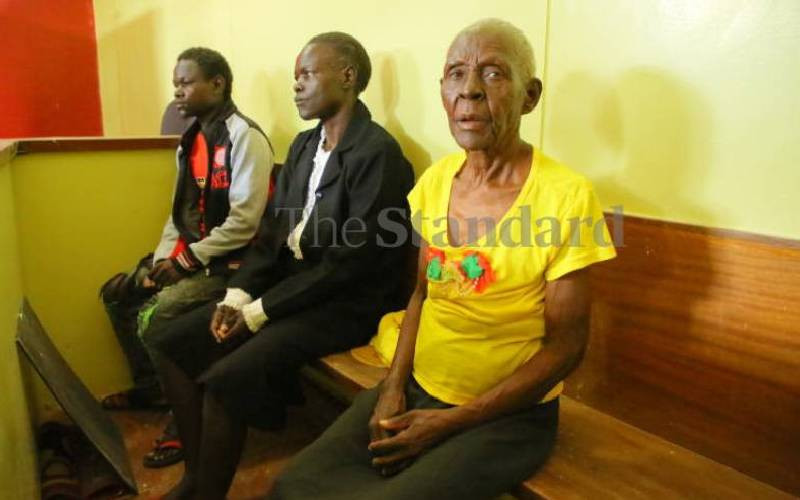UK: A woman is fighting for the right to use embryos created with her cheating estranged husband to become a mum with her new partner.
Tracy Bray, 37, suffers fertility problems and says her only hope of bearing her own child is to use the five fertilised eggs frozen before she split from Michael, 36.
Under the legal terms of their separation he has agreed she can use them – but only until the end of next year.
She says that is not enough time, and has sought legal advice to challenge his deadline.
Tracy said: “This is the only way I can become a mum. All I want is to be able to use my embryos whenever I want. I would probably use them all within the next four or five years anyway.
“What is the difference between two-and-a-half years and five years? It makes no odds to him at all.”
Tracy split from Michael last year after she claims he had an affair. Both are now in new relationships and are set to divorce.
Tracy’s fiance Richard Duncan, 38, has vowed to bring any child up as his own and not to seek financial support from Michael, who lives with new partner Faith Mackie, 26, near the couple in East Wemyss, Fife.
Richard would also have his name on the baby’s birth certificate if permitted.
Tracy said they are no longer entitled to free treatment on the NHS and cannot afford the £5,000 for private treatment.
Their only hope is to use the existing embryos and have them implanted, which can be done on the NHS.
But she said: “I am not physically or mentally ready at the moment to try another cycle of IVF and the time period runs out at the end of 2016.
“This means in the worst-case scenario I could run out of time after two IVF cycles and still have two or three embryos left. I can’t understand why Michael won’t let me use them all if I need to.”
Tracy and Michael tried three IVF cycles while they were together. The first ended in miscarriage on Christmas Day in 2006 and the second attempt the following year failed too.
Daily Record Tracy Bray, pictured with new fiance Richard Duncan, who is embroiled in an row with her ex-husband over frozen embryos
Stay informed. Subscribe to our newsletter
Then in June 2012 Tracy became pregnant again, but baby Matthew was born prematurely, at 32 weeks. He was starved of oxygen for six minutes as doctors struggled to deliver him and died just 16 hours old
Before he died, Tracy and Michael solemnly promised him they would give him a sibling.
Tracy said: “It feels like Michael is now trying to break that promise. It means everything to me to give Matthew a little brother or sister and keep the vow I made him in hospital.”
Tracy said Matthew’s death put huge pressure on her marriage and claimed the last straw was when she discovered Michael was having an affair.
The couple split in May last year after being married for nine-and-a-half years and drew up a separation document with the help of a lawyer.
The agreement included a clause covering the remaining embryos, currently stored at the Victoria Hospital in Kirkcaldy.
It states Tracy “will be able to use all five frozen embryos which the parties have stored for the purposes of IVF within two and a half years from the last date hereof”.
Tracy now wants to extend the time period to give her a better chance of conceiving and has drawn up a new document to reflect that, but Michael has refused permission.
Michael refused to comment on the case but a close family friend said: “The terms were agreed at the time. Michael is not going to change them.”
Embryos are usually stored for 10 years but some have been successfully used after 20 years in storage.
If a child is born through artificial insemination there are legal provisions to determine who the father is and whether there will be a liability for child support payments, according to the Department for Works and Pensions.
Whether the biological father is liable to pay depends on factors including whether the mum is married to a new partner at the time of insemination and who is named on the birth certificate.
A spokesman added: “Both parties should seek legal advice.”
 The Standard Group Plc is a
multi-media organization with investments in media platforms spanning newspaper
print operations, television, radio broadcasting, digital and online services. The
Standard Group is recognized as a leading multi-media house in Kenya with a key
influence in matters of national and international interest.
The Standard Group Plc is a
multi-media organization with investments in media platforms spanning newspaper
print operations, television, radio broadcasting, digital and online services. The
Standard Group is recognized as a leading multi-media house in Kenya with a key
influence in matters of national and international interest.
 The Standard Group Plc is a
multi-media organization with investments in media platforms spanning newspaper
print operations, television, radio broadcasting, digital and online services. The
Standard Group is recognized as a leading multi-media house in Kenya with a key
influence in matters of national and international interest.
The Standard Group Plc is a
multi-media organization with investments in media platforms spanning newspaper
print operations, television, radio broadcasting, digital and online services. The
Standard Group is recognized as a leading multi-media house in Kenya with a key
influence in matters of national and international interest.








